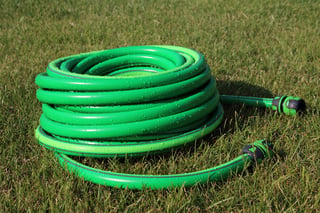 Winter is often thought to be the time when your lawn rests after having grown all spring, summer, and fall long. It's also the time where you can relax from any strenuous landscape work. However, even though 'tis the season to relax your landscaping efforts, you can't forget about your lawn altogether. Whether you realize it or not, there are still things happening underground.
Winter is often thought to be the time when your lawn rests after having grown all spring, summer, and fall long. It's also the time where you can relax from any strenuous landscape work. However, even though 'tis the season to relax your landscaping efforts, you can't forget about your lawn altogether. Whether you realize it or not, there are still things happening underground.
Winter can be harsh on plants and your lawn in general. The snow can be so heavy and so cold that you may fear your plants won't be around for another season. Fortunately, grass is one of the sturdiest plants on the planet, and most other plants have evolved to survive even the harshest winters. Of course, that doesn't mean your lawn is invulnerable to the winter chill. When spring comes around and your lawn is in good condition once again, you'll be happy that you took the steps needed to protect it. Let's take a look at a few things you can do to prepare your lawn for winter have a healthy yard come spring.
Do I need to water my lawn in the winter?
Lawns need about an inch worth of rainfall every two to three weeks or so in order to remain healthy, and grass does need water even during the winter months. However, you can water much less during the colder months, and natural precipitation is usually sufficient in most areas of the country. That being said, it's always a good idea to water your lawn one last time two to three days before the freezing temperatures arrive. This last watering session will actually fortify the plants and help them better survive the frost to come.If there is a sustained period of above freezing temperatures without rainfall or snowmelt during the winter, watering your lawn with a water hose is a good idea. To have green grass, it is mostly best to use a soaker hose that is no longer than 100 feet. You can water your lawn during the winter if it isn't raining, just be cautious of overwatering. If you overwater in the winter, your lawn may develop some fungal diseases.
Mowing during the winter
If you mow your lawn during the spring, summer, and fall, there's a chance you won't really have to do it as much, or at all, once the winter hits. Winter tends to cause the grass to grow slower, which makes mowing pointless. However, if you do notice that your lawn is growing too tall, you can cut it, as winter mowing may help your grass become stronger for the spring months.Remove the fall leaves
If there is a thick layer of leaves on your lawn from the fall, remove them before winter arrives. Any leftover, rotting leaves can cause problems for your grass like fungal diseases, and it will also shade out your grass if too many leaves are left behind.Drain your water hoses and and sprinklers
Finally, if you live in an area of the country where freezing temperatures are guaranteed, make sure you properly drain your water hoses before the first frost. In addition, make sure any sprinkler lines on the property are empty.Making sure that your lawn is healthy and ready for the winter will reduce your need for replanting once spring arrives. Those working conditions may include having to replace your lawn completely or shell out a ton of money just to fix it up.



